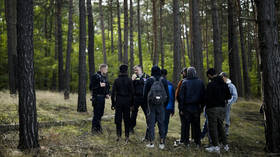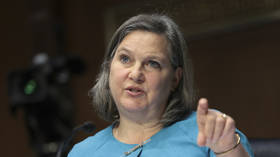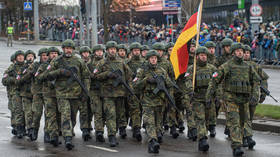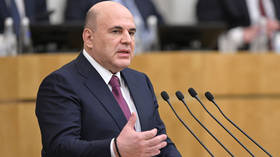Germany to accelerate deportations
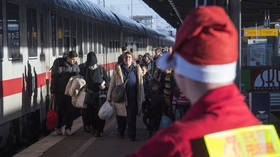
Germany is to tighten its immigration laws and may begin processing asylum applicants in third countries outside of the European Union, Chancellor Olaf Scholz has announced. Italian Prime Minister Giorgia Meloni revealed earlier this week that Rome is going to build such a holding facility in Albania.
Emerging from marathon nine-hour-long talks with regional leaders into the early hours of Tuesday, Chancellor Scholz hailed the agreed-on measures as a “historic moment.” He named the restriction of “irregular migration” as his cabinet’s objective. He also pledged that the federal government would support regional authorities with respect to receiving immigrants.
Those who’ve been denied the right to stay in Germany, especially offenders and criminals, will be deported back to their home countries more swiftly, Scholz said, with Berlin actively negotiating with several nations of origin.
According to the chancellor, all court processes for asylum eligibility will now take no longer than six months. To speed matters up, the government will also introduce more digital solutions. The plan also calls for a reduction of cash payments to registered arrivals and a longer wait before they can access full welfare allowances, increasing from 18 months to 36.
In addition, asylum seekers with a good prospect of being granted refugee status will be integrated more rapidly into the country’s labor market, with the government earmarking more resources for professional and language courses.
The chancellor also revealed that his government would look into whether it’s possible to process asylum applications in third countries, outside of Europe. In the meantime, German authorities would continue to monitor the country’s borders with Poland, the Czech Republic, Austria and Switzerland, he added, to prevent migrants from entering illegally.
Among other measures unveiled by Scholz is a decision to limit the right to family reunification for individuals who do not qualify as refugees but who still have subsidiary protection status.
According to Berlin’s figures, between January and September this year the number of applicants for residency rose by about 73% compared to the same period last year. This statistic, however, does not include Ukrainian refugees, over one million of whom have arrived in Germany since February 2022.
On Monday, Italian Prime Minister Meloni announced that her government had sealed a deal with Albania for the creation of a processing center there, which is expected to handle up to 36,000 applicants annually.
The news riled humanitarian and human-rights groups, with the International Rescue Committee describing the deal as “dehumanizing.”
According to the Guardian, citing EU officials, the arrangement has also ruffled more than a few feathers in Brussels.
